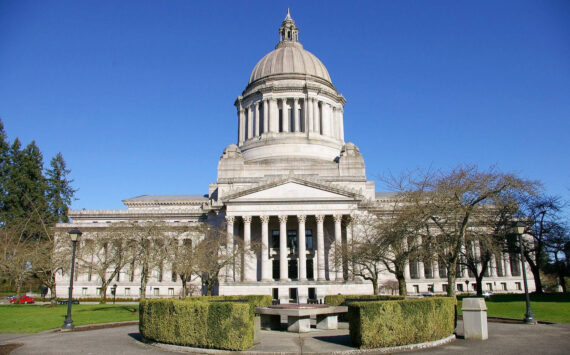Tacoma will be able to meet its budget requirements for this year, but long term concerns – such as the effects of Initiative 747 and yet-to-be discovered revenue sources to fund city projects – could present financial difficulties.
Thats what the City Council was told at yesterdays study session where Tacomas budget status was reviewed as part of a biennial budget update.
There are sufficient revenues for the rest of the biennium, City Manager Ray Corpuz told the City Council.
Then theres the implications of the state budget, which seems to be growing worse, he said in opening remarks.
In March, the Legislature passed a $22.5 billion budget plan that bridges a $1.6 billion budget gap.
The two-year plan calls for spending cuts and the use of tobacco settlement funds, state reserves and federal funds.
It freeze the wages of state employees, cut spending in all state agencies and result in nearly 1,000 layoffs.
It will be important for the citys budget planners to monitor the changing economy, Corpuz said, with an eye toward pulling out of the recession.
Were in a real different economy from the last 10 or 15 years, said Diane Supler, director of the Office of Management, Budget and Analysis, noting there are mixed signals on the state of Washingtons economic recovery and how that affects Tacoma.
State and national unemployment figures rose in April, Supler said.
According to the Washington State Employment Security Commission Washingtons seasonally adjusted unemployment rate jumped three-tenths of one percentage point to 7.1 percent.
National unemployment rose by the same amount to 6.0 percent.
Areas to watch include retail sales tax, where there was no growth, and rising health care costs, she said.
On the positive side, the rising stock market usually precedes an economic recovery, Supler said, and local home sales are good.
The citys General Fund was up $3.8 million from estimates for the period from Jan. 2001 through March 2002.
Projected biennial revenues were $183,052,888, with actual revenues received at $186,839,691.
Property tax assessed valuation collected for 2002 is $11.6 billion dollars, as compared to $10.6 billion last year.
The total tax per thousand dollars of assessed valuation is $17.12, down from last years $17.54.
The average value of a residential home this year is $130,000, up from last years $119,000, Supler reported.
Sales tax revenues for the first quarter of this year showed no growth, at 99.7 percent of collections in 2001.
Essentially weve flatlined on our tax collection, Supler said. Im very comfortable that were going to meet our predictions.
She described the impact of sales tax revenues on the economy as regionalized, possibly indicative of a good business composition that would help support the overall economy.
Projected year-to-date (from Jan. 2001 to March 2002) General Fund expenditures were $194,622,836, compared with actual expenditures of $188,670,901, for a positive variance of $6.1 million.
General Fund appropriations adjustments to be requested total $2.3 million, including such items as rent for use of the County-City Building, fire and police pensions and the Thea Foss clean-up.
Other non-General Fund adjustments total $2.7 million and include 1992 bonds for the Pantages match and the Metro Parks Peoples Center and a new fund for the Convention Center.
These proposed budget changes will be discussed and likely come before the City Council on June 11.
The good new is we dont have to do a budget amendment cutting services, or do any more belt-tightening, Super said.
In August 2001, the City implemented a hiring freeze and forecast an estimated $4.4 million shortfall for 2001.
In October of last year, the city cut the General Fund budget by 1.95 percent by years end to balance an anticipated $6 million shortfall for 2001-2002.
Despite the overall good economic news, especially compared to last year, city officials remained cautious.
We have to watch out and be very prudent about this budget, Corpuz said.
Long term concerns included the compound effects of Initiative 747 and revenue sources for the construction boom in Tacoma.
Initiative 747, approved by voters in the Nov. 6, 2001 general election, limits the total annual property tax levy increase to 1 percent or inflation, whichever is lower.
We have some darker days coming, Councilmember Kevin Phelps said. The money is there. We just dont want to spend it.
Supler pointed out that some of the big construction projects the city has planned for the future dont have revenue sources yet.
We have a lot of challenges ahead of us, she said.
Tacoma budget in black…for now
Tags: budget amendment cutting services, City Council, city manager, County-City Building, date, Diane Supler, Director, effect, General Fund, Kevin Phelps, Metro Parks Peoples Center, Office of Management, Ray Corpuz, retail sales, SGD, USD, Washington State Employment Security Commission Washington, Washingtons




